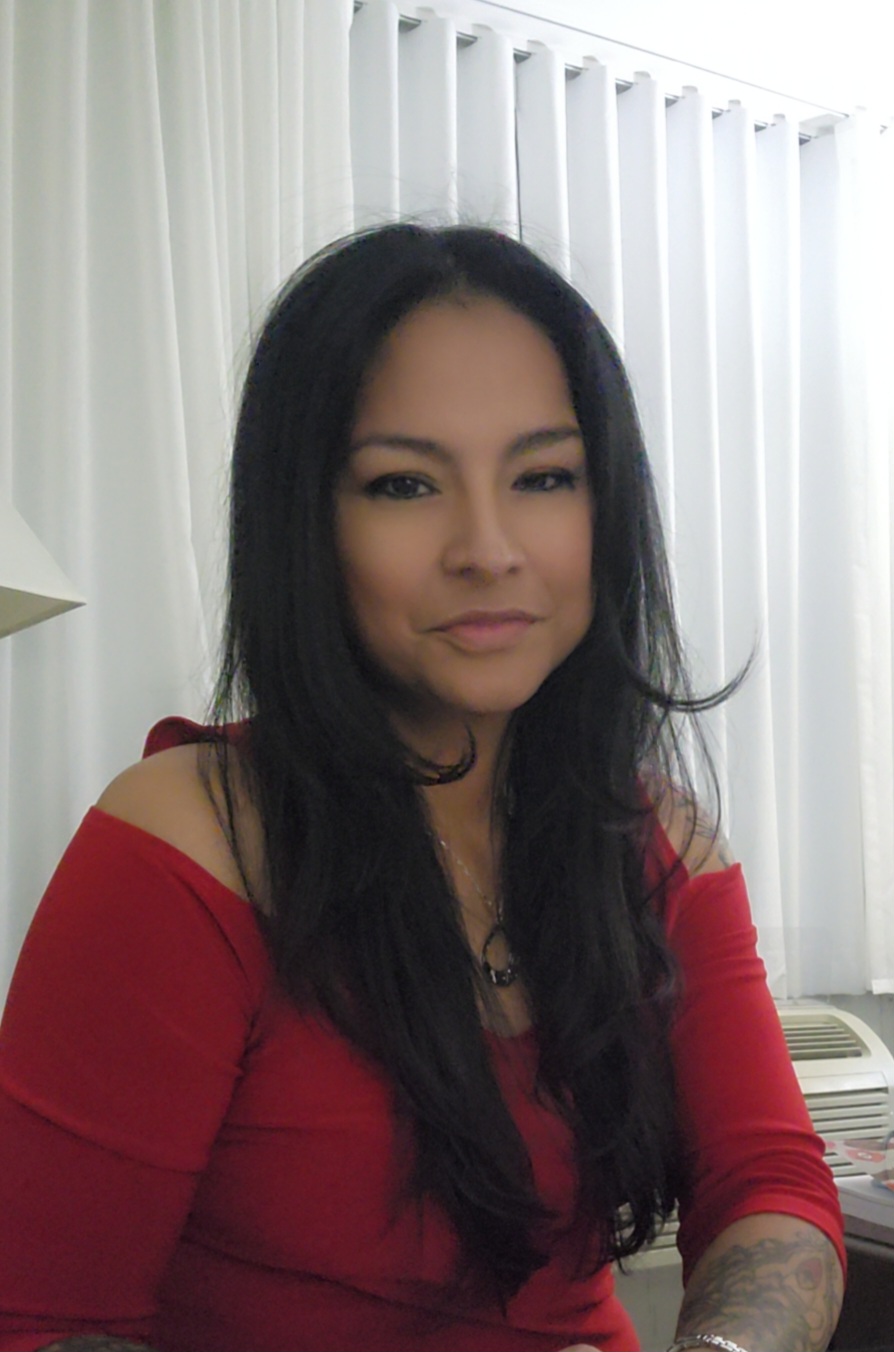Current Graduate Students
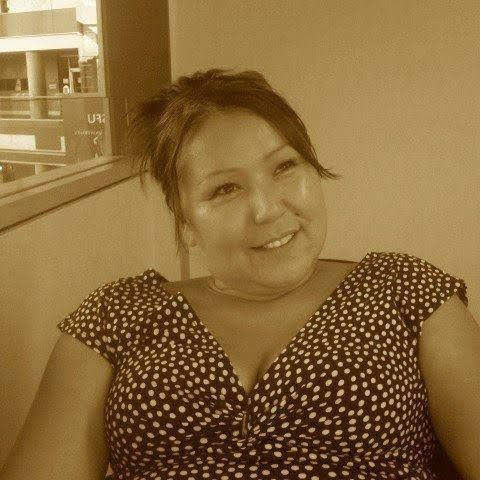 |
Tina Alexis
|
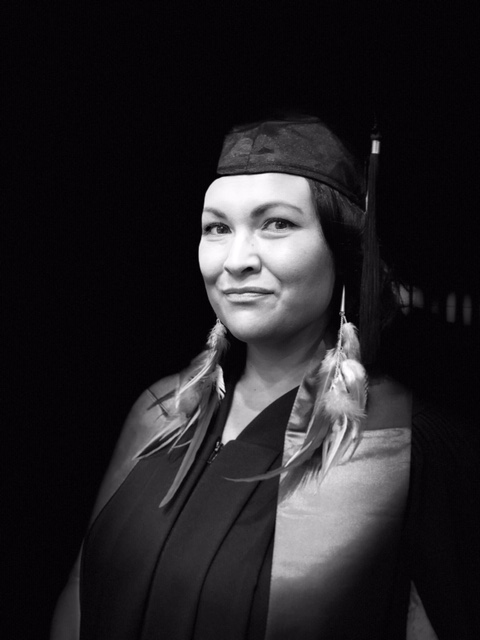 |
Christy Anderson
|
 |
Jade BadgerMA Student Jade Badger is from Cote First Nation, located in Treaty 4 Territory, and was raised in Saskatoon, Saskatchewan. She is a master’s student in the Department of Indigenous Studies at the University of Saskatchewan. Her research examines how colonial governance structures have shaped political and social systems in Indigenous communities and explores pathways to reassert Indigenous legal, political, and traditional authority. Using critical race, Indigenous feminist, and decolonial frameworks, Jade’s work analyzes the interconnections between racialization, governance, and colonial policy in Canada. Her research interests include Indigenous and traditional governance systems, critical race and feminist theory, decolonization, resurgence, and the study of policy frameworks that shape Indigenous-state relations. |
|
|
Danielle BirdPhD Candidate Ms. Danielle Bird (Nehiyaw) is a member of the Saddle Lake Cree Nation in Alberta and has familial ties to the Mistawasis Nehiyawak in West Central Saskatchewan. Education: BA, Great Distinction 2016
MA, Indigenous Studies, 2021 Department of Indigenous Studies (Major) University of Saskatchewan Research Disciplines: Sociology, Indigenous Studies Areas of Research: Crime, Criminalization, Critical Prison Studies, Social Control, Gender, Indigenous Peoples, Community Reintegration, Social Exclusion, and Violence against Indigenous Women Contact Information: Department of Indigenous Studies, University of Saskatchewan |
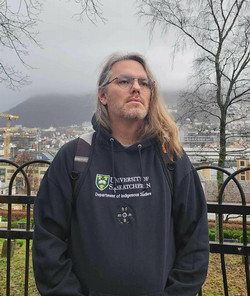 |
Ian CameronMA Student Ian Cameron is a Master’s student in the Department of Indigenous Studies at the University of Saskatchewan, where he also completed his Bachelor of Arts in 2025. Ian’s path to graduate school was forged through a thirteen-year battle with alcoholism and a suicide attempt; a period of personal history that culminated in him filing for divorce and bankruptcy in the same week. He views these “boring” realities of suffering and the subsequent gruelling process of reclamation as the foundation of his academic perspective. For Ian, education is a cornerstone of his ongoing recovery and a tool for dismantling the narratives that seek to “other” those who have hit the bottom. His research, supervised by Dr. Winona Wheeler, is titled “The Monster as a Colonial Technology: Narrative ‘Othering’ and Legal Dispossession in Sápmi and Treaty 6”. Ian investigates “monster-making” not as simple folklore, but as a deliberate political technology used by settler-colonial states to justify land acquisition. Through a comparative analysis of 19th-century Norway and Canada, he argues that the construction of the “Troll” and the “Savage” functioned identically to position Indigenous peoples, the Sámi and nêhiyawak (Plains Cree), as monstrous obstacles to civilization. By utilizing Critical Discourse Analysis and Indigenous Legal Theory, Ian’s work explores how these curated stories served as legal instruments to delegitimize Indigenous legal orders, such as siida and askiy, justifying state-sanctioned dispossession. His research aims to show that these narratives were never merely cultural artifacts but “legal instruments” used to sanction the theft of land. |
Charles DeMockerMA Student |
|
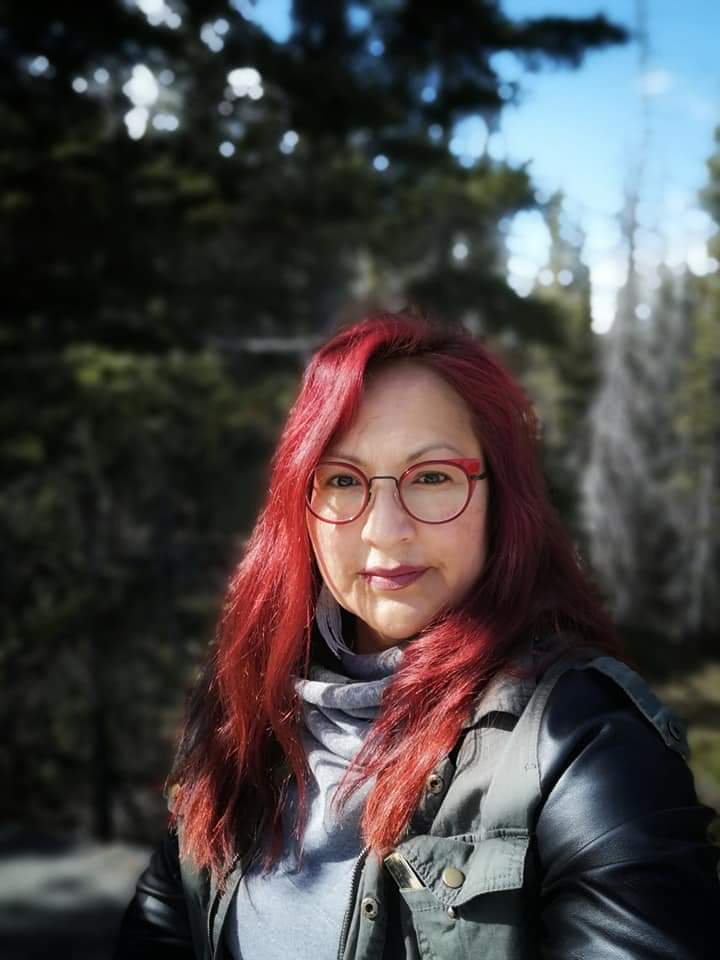 |
Jenny GardipyPhD Candidate Tanisi. Jenny Gardipy nitisîyihkâson, Beardy's and Okemasis First Nation ohci niya in Treaty 6 Territory. I am a mother of six and grandmother of four. I feel so honoured to be selected as one of the PhD candidates for the Indigenous Studies Department at the University of Saskatchewan. I worked as the Associate Regional Director for the First Nations and Inuit Health Branch (FNIHB) and took a year off work to be closer to nikawiy after nohtâwîpan passed away. I joined the federal government in December 2016 as the Director of Business Operations for the FNIHB, Saskatchewan Region in the newly formed department called Indigenous Services Canada (formerly under Health Canada). I proudly graduated from the University of Saskatchewan in 2011 with a Master's degree in Public Health. Immediately after obtaining my degrees, I worked with national and local health organizations before becoming the Director of Health for my community. I have always had an interest in working in the health field and strongly believe that Indigenous peoples have the capacity and knowledge to make healthy changes in their communities. I am passionate about taking an active role in helping communities move towards better health outcomes. Nikawiy went blind when I was 13-years old and I have witnessed the lack of health services that many in the disabled community face. Nohtâwîpan survived the Indian Residential School and recently passed away on February 15, 2018. His humble and Nehiyaw ways of being continue to be my foundation. I look forward to learning from the amazing Indigenous Studies faculty and possibly contributing to positive health outcomes of Indigenous peoples. kinanâskomitin |
Ferdinand GemohPhD Student |
|
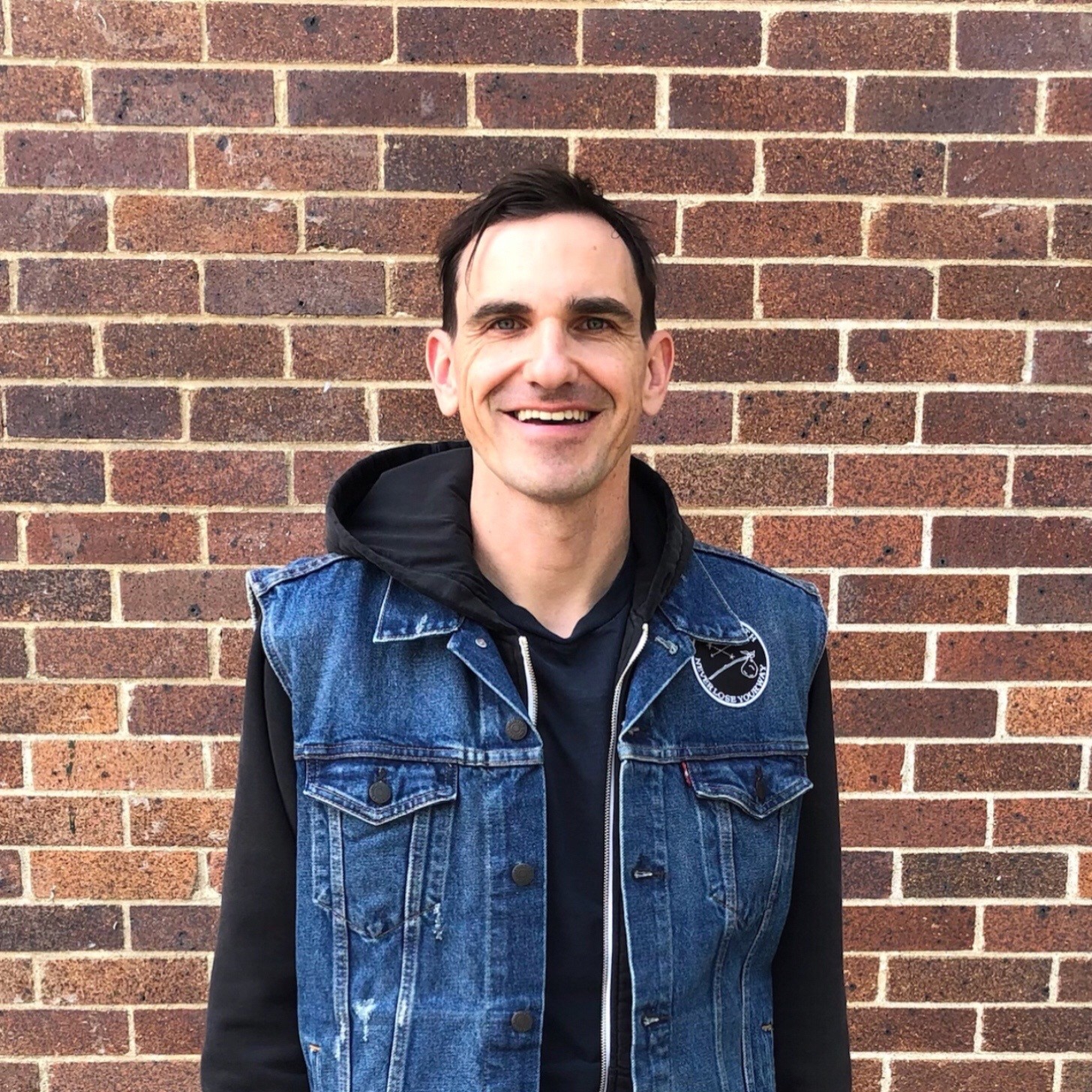 |
Matthew GravlinPhD Candidate Matt is from and resides in Saskatoon, SK - Treaty 6 Territory. Matt received a BA (Hons) in International Development in 2010, and MA in History in 2015, both from the University of Saskatchewan. His current research areas include critical and radical political theory, discourses of indigeneity and resilience in the Anthropocene, Indigenous resistance against settler-colonial governance, and movements dedicated to the return of colonized land to Indigenous peoples. |
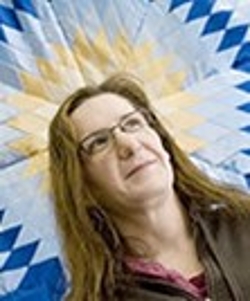 |
Michelle HoganPhD Candidate Michelle is a member of the Batchewana First Nation in Sault Ste. Marie, Ontario, the parent of seven children, and grandparent of two. She earned an Associate of Science Degree in Computer Science from Camosun College in Victoria, BC. in 2002 and a BA (High Honours) in Indigenous Studies from the University of Regina in 2005. She earned a Master of Arts in Native Studies from the University of Saskatchewan in 2008. Her MA thesis was titled: "They're Tough, These Women!": The Everyday Resistance of Aboriginal Women to Dehumanization by Government Agencies. Michelle is currently in a term lecturer position in the Department of Indigenous Studies at the University of Saskatchewan. |
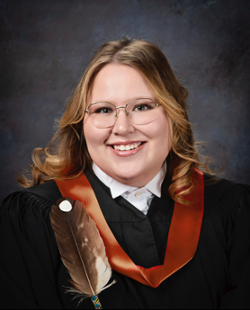 |
Halyna IgnatiukMA Student Halyna Laurie Therese Ignatiuk is a member of One Arrow First Nation in Treaty Six Territory, and the daughter of Warner Ignatiuk and Tammy Ignatiuk (Almightyvoice). Her cultural heritage is Plains Cree and Ukrainian. Halyna has graduated with her bachelor's in human justice (distinction), and certificate in Indigenous languages (Cree) in the Winter of 2025. Currently, Halyna is a graduate student in the Master's Program at the University of Saskatchewan and will begin her thesis in Fall 2025. Her research will focus on reducing the overrepresentation of Indigenous people in the justice system and examining how the Canadian Education System plays a role in the high numbers. Her research interests include human rights, Indigenous justice, Indigenous ways of knowing, social justice, criminal justice, international justice, and connecting with her Cree traditions and language. Halyna has spent some time abroad in Australia researching the Aboriginal justice system and writing proposals for policy to bring computers into cells for Aboriginal youth to ensure they have access to education. The proposals have reached legislative and even United Nations level for consideration. Another notable academic achievement was her and Sarah Feeley's research on 'Call to Action 38' presented at the University of Regina's annual Justice Studies Student Symposium. Halyna has also spent time working with Indigenous Services Canada assisting in the yearly treaty annuity payments and other organizational tasks. On a more personal note, Halyna simply enjoys attending cultural events, spending time with friends and family, fishing, and relaxing in her free time. |
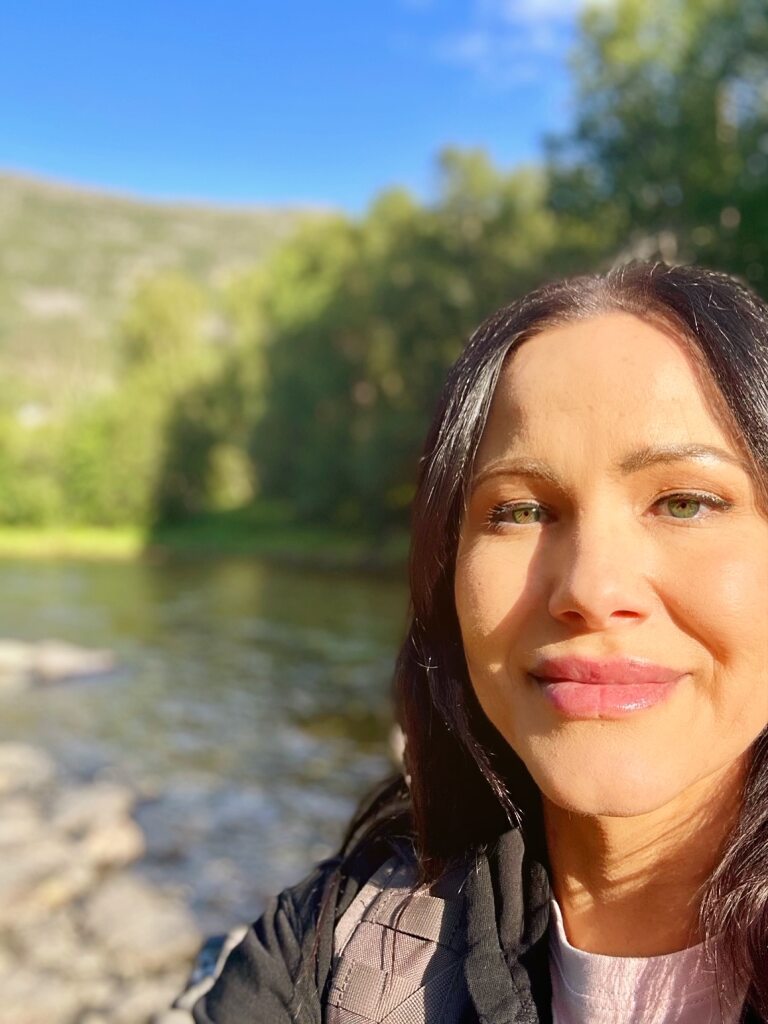 |
Lindsay Knight (she/her)PhD Candidate Lindsay Knight is half nêhiyaw (member of Muskoday First Nation) and half immigrant (Russian/Polish) with lived experience as an urban Indigenous person in Saskatoon, Treaty Six Territory. She is a PhD Candidate and lecturer at the University of Saskatchewan. Her research focuses of Indigenous music and gender (de)construction within urban identities. As a musician, she uses her music and words to spread messages of resistance and revolution to ensure that Indigenous language, land, and culture is alive for the next generations and is frequently invited to work with young people across Turtle Island as a mentor and helper. Her motivation for all of this is her two beautiful kids, Keesik and Kisay. |
 |
Portia LafondMA Student Portia Madelaine Eva Lafond is nêhiyaw (Cree) from Muskeg Lake Cree Nation and an MA candidate in Indigenous Studies at the University of Saskatchewan. She is a graduate of Concordia University’s First Peoples Studies program. Her research engages nêhiyaw legal orders, Treaty relationships, and kinship governance through a decolonial and Indigenous feminist framework. She examines how colonial archives and museums have structured Indigenous dispossession and how nêhiyaw relational philosophies and Treaty-based responsibilities can inform alternative models of governance, stewardship, and repatriation. Her scholarly interests include Indigenous resurgence, data sovereignty, Indigenous legal revitalization, and feminist approaches to self-determination. Portia serves on the Muskeg Lake Cree Nation Youth Council and is actively involved in community-based research and cultural initiatives that support Indigenous governance and intergenerational knowledge transmission. |
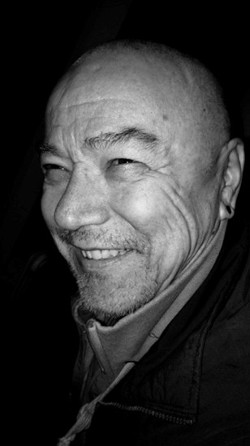 |
Don MartinMA Student Don Patrick Martin is Mohawk from Kahnawake. Don was educated at an Indian Day School and then went to Secondary Schools in Campbellton New Brunswick and Chateauguay Quebec. He continued his education at Ganienkeh in Iroquois Law and Philosophy at Eagle Bay New York and was with the White Roots of Peace Traveling Collage from Hogansburgh New York. Don also has a BA in Philosophy from Mount Allison University NB, and a B.Ed. from Crandall University also in NB. Don is a traditional singer and teaches Iroquoian Songs, Dances and Flute music. He is also a singer/songwriter and studied classical piano performance in Montreal, Quebec. His first CD titled So This Is America, was a voice protesting the 500th anniversary of the discovery of America in 1992. Later, his tone poem titled Iroquois Impressions Opus 4, captured ancient Iroquoian melodies for solo piano and was dedicated to the memory of Kateri Tekakwitha. Don also advises composers and production companies on ways of approaching Indigenous music for cinema or live productions. Currently, he is finishing his Master's in Indigenous Studies with a focus on Kateri Tekakwitha as an Iroquoian war insurgent against the French thus, her acceptance of christianity was a ploy that allowed her and others to gather information on troop movements, moral, and supplies. |
Dylan MerrickPhD Candidate |
|
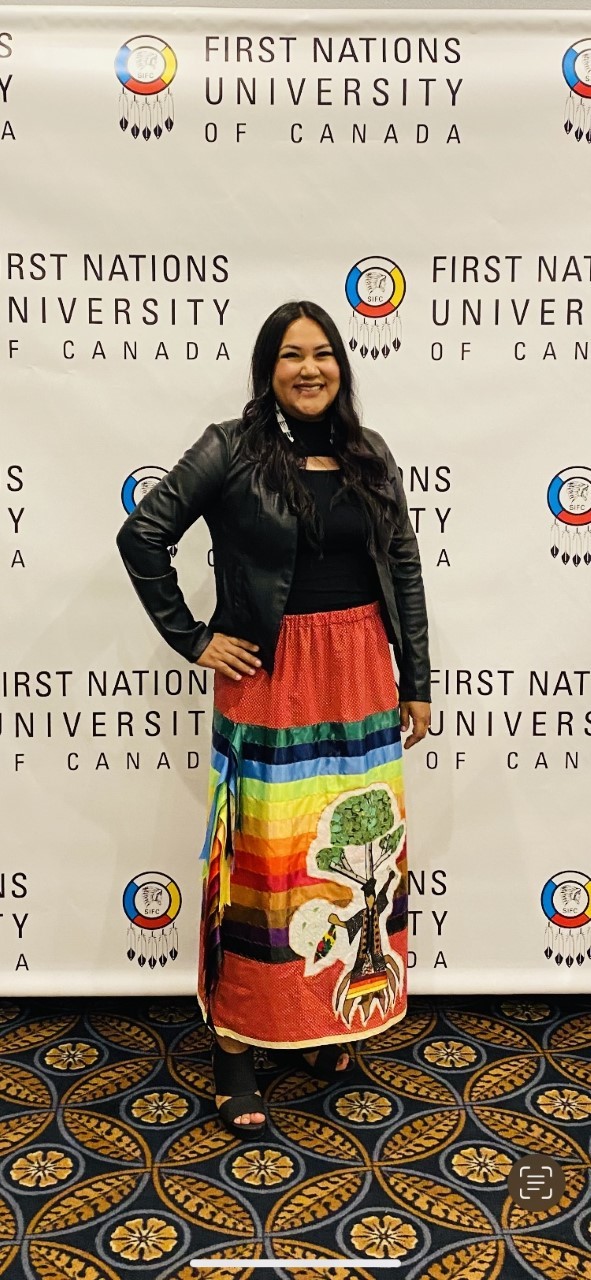 |
Wendy MirastyPhD Student Wendy Mirasty is from Little Red River Reserve-Lac La Ronge Indian Band located on treaty six territory. She is currently a Doctoral student with the Department of Indigenous Studies, University of Saskatchewan. She is a self-published author “52 Weeks of a Single Mother’s Love”. It is a self-help book for single mothers. Weekends she spends time with her family. Most of the time it is at the football field, hockey rinks or basketball courts year round. Wendy’s research is focused on the impacts of Intergenerational Trauma from the Indian Residential School system. She is an intergenerational survivor and is committed to helping people live a good life. |
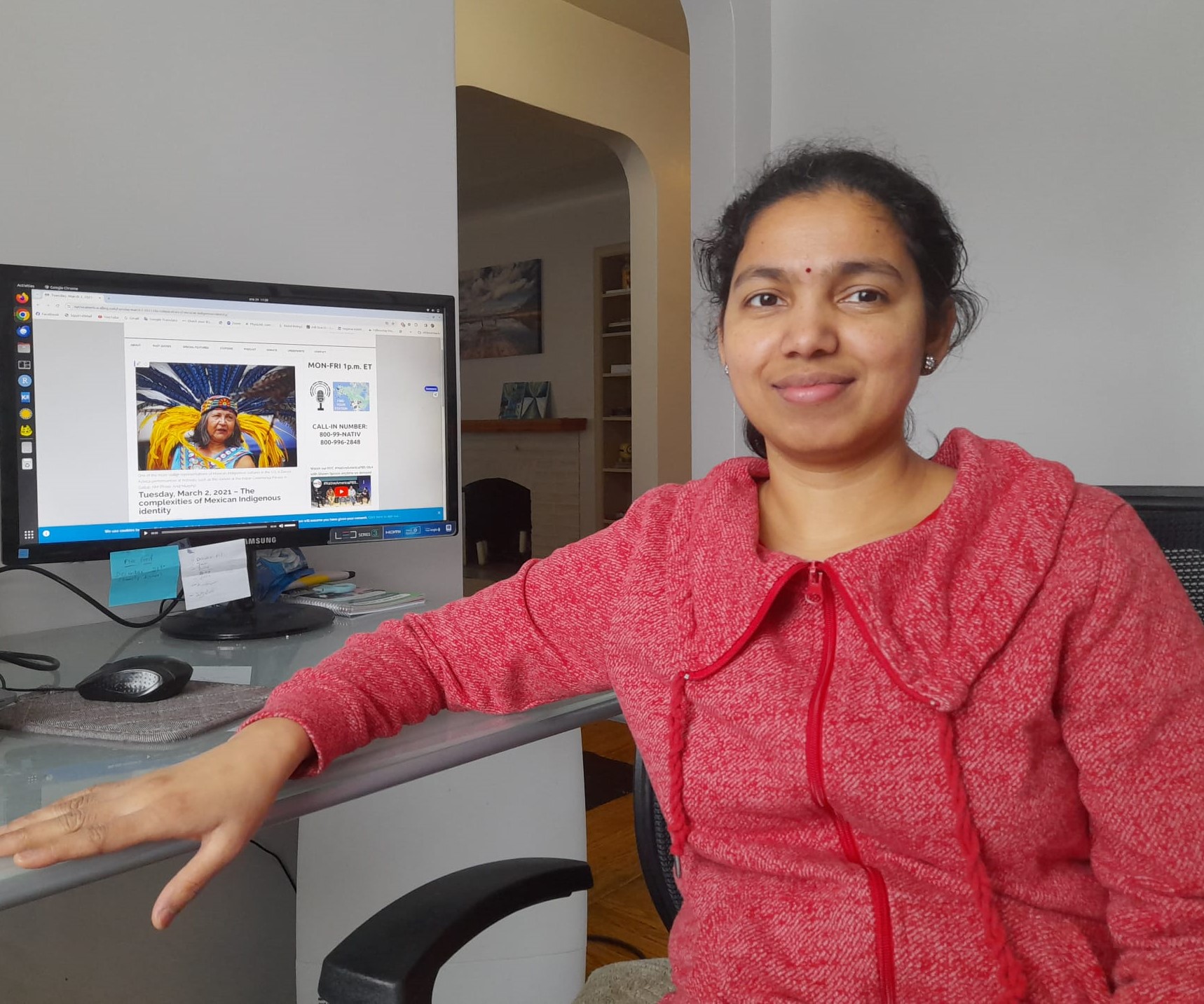 |
Suganya MunusamyPhD Student Suganya Munusamy, originally from India, is currently pursuing a PhD in the Department of Indigenous Studies at the University of Saskatchewan, under the supervision of Dr. Allyson Stevenson. Having made Mexico her home for the past ten years, her academic journey is shaped by a rich blend of cultural experiences, including learning a new language, Spanish. Suganya's academic achievements stand out, particularly in her first master's degree in Economics, where she earned a gold medal and secured the top rank at the university for academic excellence. Another step in her academic journey was receiving the Mexican National Scholarship CONACYT for her recent master's degree in Mexico. Despite her background in Economics, Suganya's current academic pursuit is an exciting interdisciplinary PhD focusing on Indigenous Studies. Her research is centred around the nuanced dynamics of child poverty within Mexican Indigenous communities, with a specific emphasis on single-parent families. Beyond her research, she actively contributes to the academic community as a Teaching Assistant for Introduction to Canadian Indigenous Studies with Swapna Padmanabha and a Research Assistant on the Métis land project under Dr. Allyson Stevenson. She is delighted to be part of this academic adventure, exploring the intersection of Economics and Indigenous Studies to gain valuable insights into the challenges faced by Indigenous families. |
Julie NaytowhowMA Student |
|
|
|
Swapna PadmanabhaPhD Candidate Swapna returned to her educational pursuits after a 27 year hiatus and recently graduated from the University of Saskatchewan with a four year BA in psychology (Great Distinction). Swapna is particularly interested in working in the area of psychological well-being within marginalized communities. For her thesis project she will be examining contemporizing traditional Aboriginal stories as a method of promoting education for Aboriginal men. She is currently examining the construct of Indigenous male identity in the first phase of her thesis project. |
|
|
Anna SchneiderPhD Candidate E-mail: ans295@mail.usask.ca Anna is an international Doctoral student from Siegen, Germany. She completed her Bachelor of Arts in Anglophone Studies at the University of Marburg in 2013 and graduated with a Master of Arts in North American Studies in 2016. During her master's program, Anna visited the University of Saskatchewan in the fall of 2014 as part of an exchange program between the University of Marburg and the U of S. She was given the opportunity to take Theoretical Issues in Native Studies, aiming to receive a first insight into the discipline of Indigenous Studies, which is largely missing from German and generally European university curricula. Her thesis contextualized histories of genocide in Germany and North America and how these histories have informed different discourses of guilt, identity, and reconciliation in present-day perpetrator societies, especially after WWII. Her doctoral research will tie in with these findings and explore more about German-European, as well as North American discourses of Indigenous colonial history and genocide. |
 |
Mike ScottMA Student Mike Scott (Nêhiyaw), a proud member of Sturgeon Lake First Nation, was born and raised in Saskatoon, Saskatchewan. His early years were spent navigating the challenges of the foster care system, where he moved between homes during the first decade of his life. When he returned to his family, he was met with the profound and lasting impacts of intergenerational trauma rooted in the residential school system. By age 12, Mike was incarcerated, spending nearly two years in youth detention centers, shaping a challenging childhood. His teenage and early adult years were marked by addiction and the loss of his mother. Despite these struggles, Mike transformed his life, embracing healing and sobriety. Over the past decade, he has travelled across North America, inspiring thousands as a motivational speaker by sharing his journey of personal growth and resilience. Education has become a cornerstone of Mike’s life. He is the first person in his family to achieve a university degree, an accomplishment he takes great pride in. Currently a student at the University of Saskatchewan, Mike is dedicated to continuing his academic journey and using education as a tool to create positive change. On August 8, 2025, Mike will celebrate 13 years of sobriety, a milestone he regards as one of his greatest achievements. His story is one of perseverance, determination, and hope, offering inspiration to all who hear it. |
Yan WangPhD Student |
|
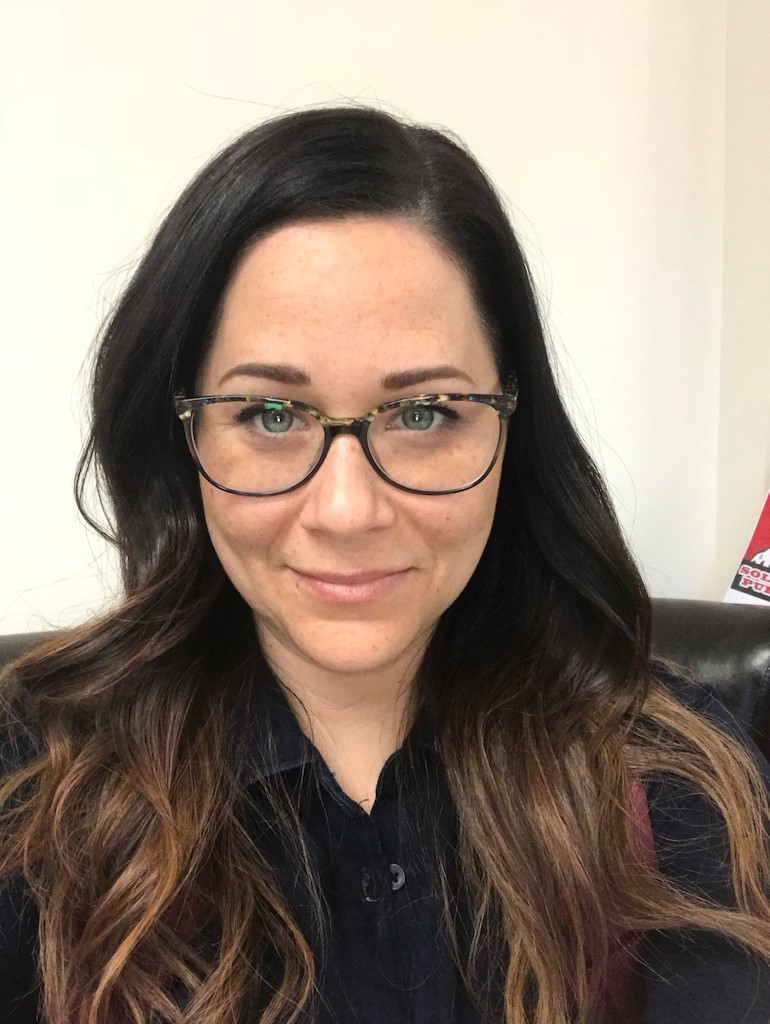 |
Sarah WernerMA Student Sarah Werner is a settler born and raised in the Williams Treaty territory (Southern Ontario) with family ties to both the East Coast of Canada and Germany. She holds a Bachelor of Arts (Hons.) from Trent University with a double major in Indigenous Studies and Anthropology. Sarah is currently enrolled in the Master of Arts, Indigenous Studies at the University of Saskatchewan, her M.A. research focuses on decolonizing the human-animal bond, specifically in therapy animal contexts. |
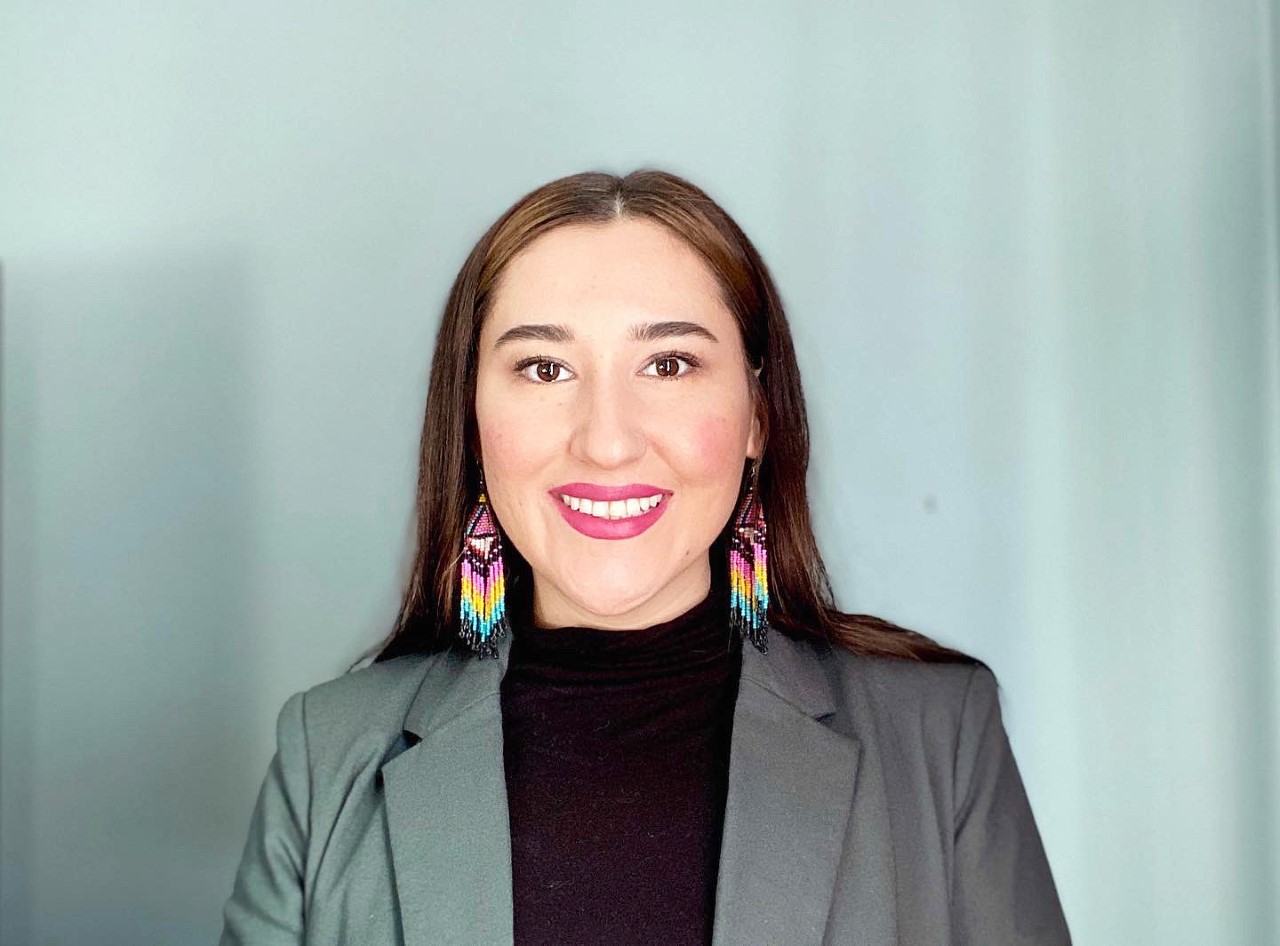 |
Michelle ZinckMA Student Michelle Zinck is Dënë from Fond Du Lac Dënësułinë First Nation, located in the Treaty 8 Territory of northern Saskatchewan. Michelle is master's student in the Department of Indigenous Studies at the University of Saskatchewan. Her research is centered on community engagement and the co-development of meaningful initiatives to address the health effects from colonially induced environmental changes in her community and globally. Michelle's research interests include Indigenous health, land and health, community-engagement, land-based healing, traditional knowledge, and Indigenous food sovereignty. |


